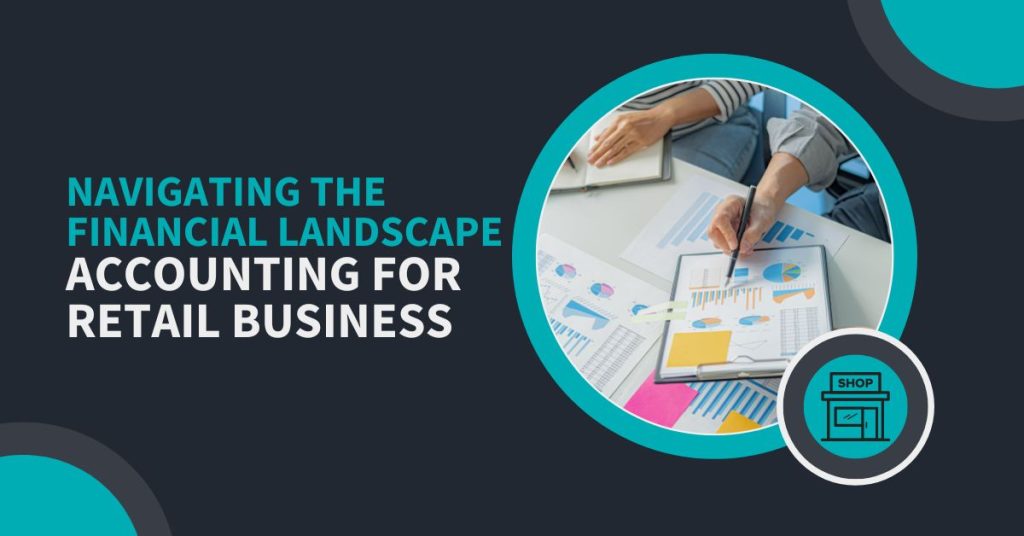In the intricate dance of commerce, retail businesses stand as vibrant players in the economic symphony. The success of a retail enterprise hinges not only on strategic sales and customer satisfaction but also on the meticulous management of finances. Enter the realm of Accounting for Retail Business, a critical aspect that ensures the financial health and longevity of these establishments.
Understanding the Basics of Accounting for Retail Business
At its core, accounting for retail business involves tracking, recording, and managing financial transactions. It’s the systematic process that allows retailers to gain insights into their financial health, make informed decisions, and comply with regulatory requirements. Bookkeeping for a retail store, an integral subset of accounting, takes center stage in this financial ballet.
The Foundation: Bookkeeping for Retail Stores
Imagine bookkeeping as the conductor of this financial orchestra, setting the rhythm and ensuring harmony in the financial records. For retail businesses, maintaining meticulous books is not merely a legal obligation; it’s a strategic imperative.
Effective bookkeeping for a retail store involves recording daily transactions, tracking expenses, and managing revenue streams. From the purchase of inventory to the sale of goods, every financial interaction finds its place in the ledger. Accurate and timely bookkeeping is the cornerstone upon which the entire financial structure of a retail business rests.
Expense Management: The Heartbeat of Retail Accounting
A key component of accounting for retail businesses is the management of expenses. Operating costs, overheads, and other expenditures can significantly impact the bottom line. Let’s delve into the various expenses that demand careful consideration.
1. Operating Costs:
Operating costs encapsulate the day-to-day expenses incurred in running a retail establishment. This includes rent, utilities, wages, and other overheads. Efficient bookkeeping for a retail store involves diligently recording these expenses to analyze and optimize operational efficiency.
2. Inventory Expenses:
For retail businesses, managing inventory is a critical aspect of expense control. The cost of acquiring, storing, and selling goods directly influences the financial health of the business. Accounting for retail business must encompass precise tracking of inventory expenses to ensure optimal stock levels and prevent financial leakages.
3. Marketing and Advertising Costs:
In the competitive retail landscape, effective marketing and advertising are essential for attracting customers. Allocating budgets for promotional activities is common practice, but tracking and analyzing the return on investment is equally crucial. Bookkeeping for retail stores must account for these expenses to gauge the effectiveness of marketing strategies.
4. Employee Expenses:
Wages, benefits, and other personnel-related expenses constitute a significant portion of a retail business’s costs. Detailed record-keeping in this domain ensures compliance with labor laws, facilitates accurate financial reporting, and aids in making informed decisions regarding staffing levels.
5. Technology and Infrastructure Expenses:
In the digital age, retail businesses rely heavily on technology and infrastructure. Expenses related to point-of-sale systems, online platforms, and other technological investments must be carefully recorded. This not only aids in budgeting but also in evaluating the efficiency of technology-driven operations.
Strategies for Expense Optimization
While meticulous accounting and bookkeeping for a retail store lay the groundwork, effective expense management is a proactive endeavor. Here are some strategies to optimize expenses and enhance the financial resilience of a retail business:
1. Regular Financial Analysis:
Frequent analysis of financial statements enables retailers to identify trends, pinpoint areas of overspending, and make informed adjustments. This not only aids in expense control but also in strategic decision-making for future investments.
2. Budgeting:
Creating and adhering to a budget is a fundamental practice in retail accounting. By setting realistic financial goals and allocating resources accordingly, businesses can avoid unnecessary expenditures and maintain financial discipline.
3. Negotiating with Suppliers:
Establishing favorable terms with suppliers can have a direct impact on the cost of goods sold. Retailers should actively engage in negotiations to secure better pricing, discounts, or favorable payment terms, thereby reducing overall expenses.
4. Embracing Technology:
In the digital era, leveraging technology for financial management is imperative. Advanced accounting software and automation tools can streamline processes, reduce errors, and provide real-time insights into a retail business’s financial health.
Conclusion
In the bustling world of retail, accounting and bookkeeping are not mere administrative tasks but strategic imperatives. Navigating the complex landscape of expenses requires diligence, foresight, and a commitment to financial transparency. By embracing effective accounting practices, retail businesses can not only survive but thrive in the dynamic marketplace, ensuring sustained success for years to come. Ceptrum is also a company providing accounting for retail business and trusted by many retailers.

